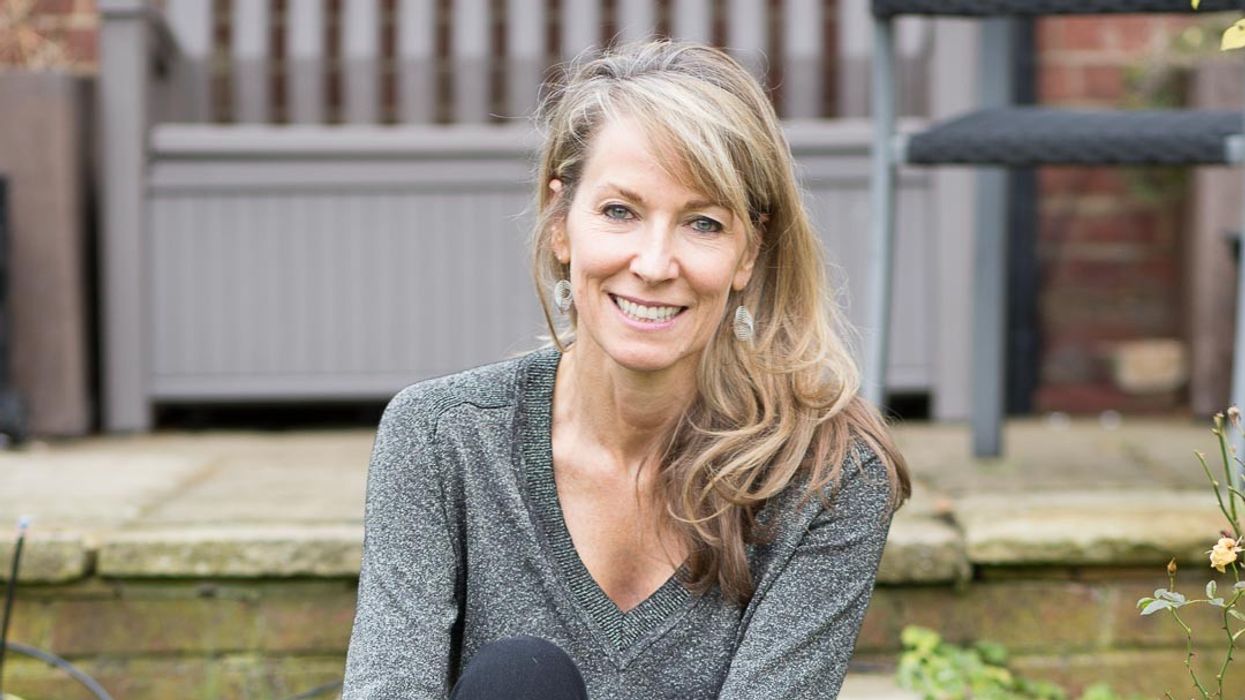Doctor Q&A: Did the Covid vaccine make my arthritis worse? Dr Renée Hoenderkamp answers all your burning questions

Doctor Renée Hoenderkamp answers GB News members' burning questions | Doctor Renée Hoenderkamp

In this week's Q&A, celebrity NHS Doctor Renée Hoenderkamp addresses the link between Covid vaccination and arthritis, the hype surrounding meal replacements and the ideal age for HRT
Don't Miss
Most Read
In many respects, a scientific claim is an oxymoron. When people refer to "the science", they are describing how things are based on observation, experimentation and rigorous testing of theories against evidence obtained.
A claim, on the other hand, is an assertion that something is the case, without providing evidence or proof.
Yet these terms often get conflated. And to make matters more confusing, some argue that there are many different ways of viewing "the science" and so we have an epistemological battle on our hands.
This tension is at the heart of the questions submitted to celebrity NHS Doctor Renée Hoenderkamp this. Finding a consensus on whether Covid vaccination can exacerbate arthritis will divide opinion, but our resident doc attempts to do just this.
Doctor Hoenderkamp also scrutinises the claims made by meal replacement companies and whether HRT is suitable for women in their sixties.
Don't forget to send your questions to health@gbnews.uk each week or click the comment button above and we'll publish Doctor Hoenderkamp's answers to your queries on GBNews.com/health every Friday.
You can also reach out to Doctor Hoenderkamp directly on Instagram and on Twitter/X to carry on the conversation.
And remember, the advice given is general and not individual and you should always seek individualised health care from a doctor.
With those caveats aside, see below Doctor Hoenderkamp's answers to this week's burning questions.
I feel like my arthritis has got worse since my last Covid jab. Is this in my head?
This is a very interesting question. Why? Well as a doctor I have seen an increase in inflammatory conditions such as arthritis since 2020 and when I discuss it with my rheumatology colleagues that tell me that they too have noted an increase.
So firstly as reassurance, you are not going mad! In the papers I found, the AstraZeneca vaccine seemed to be implicated more but the mRNA were not innocent. The flares of existing arthritis or new onset seem to start in close proximity to the actual vaccine, within 14 days. There are studies but more are needed.
The cause behind it is not clear at this stage and various mechanisms have been postulated, so more research is needed.
Causes suggested vary from an immune reaction where the patients own body attacks joint tissue through to the spike protein itself causing damage to tissues and blood vessel walls. Both of these explanations could also explain why the same phenomenon has been seen after covid infection, but to a lesser degree and does not seem to be so long lasting.
I know none of these studies are of much help to you, so in answer to what you do, I would ask for a referral to a consultant rheumatologist. It may be worth doing some research of your own to find one who has an interest in this phenomenon and then ask your GP to refer directly to them.
Meanwhile, have a look at my column last week and the week before about supplements and foods that are anti-inflammatory (I take FutureYou Turmeric and Gold which seems to be working). And combine that with a good healthy, non processed diet.
I am in my sixties and really struggling with the menopause. Is HRT off limits for me at this age?
Absolutely not! And why struggle?
Most women will get through symptoms within 7 years but some will keep debilitating symptoms for life, and there are many more than just hot flushes. I have a vlog on this here. HRT is often the answer with some women choosing and needing to take it for life.
The ideal age to start HRT is considered to be 10 years after your last period, which for most women is usually around 60. There is a good reason for this age and that centres around cardiac and breast disease. Heart disease is the number one cause of death for women and tends to develop after menopause and the longer the period without oestrogen, the more developed heart disease can be. This means that older women will not necessarily reap the preventative benefits of HRT but that doesn’t mean its not worth it. There are studies showing that the beneficial relaxing effect of oestrogen (the important part of HRT) on arterial walls are present whenever started and can lower blood pressure.
Regardless of age, if you have a uterus (haven’t had a hysterectomy) then you also need progesterone as part of HRT and this is associated with a slightly increased risk of breast cancer and the risk for breast cancer without HRT increases with age.
However, as you can see from the attached poster from the British Menopause Society, HRT risk is lower than some lifestyle activities from drinking a glass of wine a night and being overweight being bigger risks for breast cancer.
If you have had a hysterectomy you only need oestrogen and this actually lowers your risk of breast cancer against the normal population.
So my answer would be no: HRT is not off limits for you. See your GP for a general health check and risk assessment, make sure that mammograms are up to date and cardiac risk factors minimised or controlled. Then I would opt for body identical oestrogen, delivered through the skin, plus, if you have a uterus, micronized progesterone as a tablet you take at night. This represents the best risk profile and removes any risk of DVT/stroke.
It is also important to start at a low dose, low enough to minimise any risk but also control symptoms and if using a gel or spray it is simple to alter doses as needed. I have seen women transformed in their 60’s by starting HRT so don’t suffer in silence, if you need it to live your best life, you need it.
What are your thoughts on meal replacement drinks like Huel and yFood?
My approach to this is founded on the principle that processed food is never as good for you as non-processed. So from that start point I would urge anyone to consider the following:
Ingredients
Whilst these replacement meals make claims regarding the vast range of vitamins and minerals they contain, there are many ingredients in foods which are not minerals or vitamins but absolutely necessary for health and as I covered in last weeks column, may even go as far as to fight cancer, help arthritis or even stave off menopause symptoms, e.g. phytonutrients. You won’t necessarily get these in a meal replacement.
Ultra-processed
There is no getting away from it. These meal replacements are ultra-processed and if you want to try and avoid many health issues in the future, avoiding ultra processed food is one part of the jigsaw. So it will always be better to consume food as close to its raw state as possible and if you can organic, non farmed fish and pasture fed meat. But don’t just take my word for it, there is a good study here.
We need to chew
The problem with so much food today is that it is so processed that it has essentially been pre-chewed for you. Doctor VanTullekan details this nicely in his book Ultra Processed humans. Chewing is vital for children to develop their jaw and associated muscles and an ultra-processed diet is often leaving teenagers needing orthodontic because chewing a good piece of fresh cooked meat or fruit and veggies wasn’t required in a processed diet.
Chewing tells your brain to release digestive enzymes to break food into the required micro-nutrients. It is also critical to the release of stomach acid which if too low can cause bloating or indigestion. Breaking them down properly is critical for gut health where 80 percent of immune cells are based. Poor gut health leads to poor overall health and the ability to mend ourselves. Meal replacements don’t require any chewing.
We need fibre
Many of these meal replacements have zero or very little fibre. We need both soluble and insoluble fibre for gut health and not getting enough is a major cause of constipation in Western diets which leads to piles, fissures and diverticular disease… as well as being very uncomfortable!
So I think its fair to say in answer to your question that I don’t think these are a great idea. If you want to do it for a limited time period or, say, replace one meal a week, fair enough, but as the answer to busy lives as a regular meal replacement, they don’t get my vote.
Disclaimer: Huel prefers to position itself as an alternative meal, rather than a replacement.
James Collier, Huel’s co-founder and its chief sustainable nutrition officer is a registered nutritionist and former NHS dietician.










